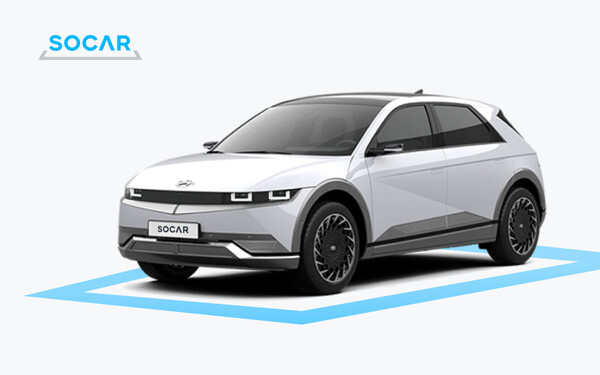Living in South Korea, you’ll find that most areas are well-connected by public transportation, making it easy to get around without owning a car. However, on weekends, when carrying heavy luggage, or during rainy and snowy seasons, there are times when you might need a vehicle, even for a short period. In such cases, the first option that comes to mind is a “car sharing service.” Car sharing is similar to short-term car rentals but offers greater flexibility by allowing you to rent a vehicle for shorter durations—by the minute or hour. In this post, under the theme “No Car? No Problem!” we’ll explore the most popular car sharing services in South Korea, how to sign up, and important tips for foreigners.
Car Sharing vs. Short-Term Rental: What’s the Difference?
Usage Method & Pricing Structure
Short-term rentals are usually priced per day (24 hours), for example, “₩50,000 per day.” On the other hand, car sharing can be charged in smaller increments—10 minutes, 30 minutes, or an hour. If you only need a vehicle for about two hours, car sharing can be much more cost-effective than paying for a full day of rental.
Another key point is that car sharing generally operates on a “contactless pickup” system. You reserve a vehicle parked at a designated spot via the mobile app, unlock it, drive it, then return it to the same location (or a designated drop-off spot). This means you don’t have to visit a rental branch in person, and you can access vehicles 24/7, offering great convenience.
Vehicle Types & Insurance Coverage
Car sharing companies usually focus on compact and mid-size cars, with fewer options for SUVs, large vehicles, or imported cars. In contrast, traditional rental companies often offer a wider variety of models. Insurance coverage may also vary. Most car sharing services include a collision damage waiver (with a deductible) or let you add it for an extra cost. Be sure to check the coverage and deductible level in the app before using the service.

Popular Car Sharing Services in Korea
1) SOCAR
SOCAR is one of the largest car sharing companies in South Korea, with numerous service zones nationwide. You can easily find SOCAR zones in major cities like Seoul, Gyeonggi, Busan, and Jeju. Foreign drivers can also sign up relatively easily.
After downloading the SOCAR app and creating an account, you upload your driver’s license (international or Korean), passport, and other required documents for verification. Insurance plans include Basic and Super CDW (Collision Damage Waiver). The Basic plan has a higher deductible with lower rates, while the Super plan offers almost zero out-of-pocket cost for accidents but at a slightly higher rate.
2) GreenCar
GreenCar also has extensive service coverage nationwide and offers a variety of vehicle types, making it a popular choice. Similar to SOCAR, you reserve via the app and pick up your car at the designated location. Foreigners can join by submitting a valid license and ID.
One of GreenCar’s standout features is the frequent promotions and partnership discounts (with cinemas, shopping malls, etc.). They also run special discounts on weekends and holidays, so it’s worth checking the in-app event menu before booking to secure the best rates.
3) Other Car Sharing Services
In Seoul, smaller services like DLCar and company-operated fleets are also available. However, these may have fewer locations nationwide. In major cities like Gyeonggi, Incheon, and Busan, SOCAR and GreenCar dominate. Smaller providers tend to focus on specific areas, offering niche services.
How Foreigners Can Use Car Sharing in Korea: Required Documents
International or Korean Driver’s License
To use car sharing in Korea, you must hold a license valid for legal driving in the country. This means having an International Driving Permit (IDP) along with your passport and home country license, or a Korean driver’s license (including those obtained via license exchange). Most apps require you to upload photos of your license and passport during sign-up, followed by a verification period.
Some apps may take longer to process foreign licenses due to recognition issues. If your approval is delayed, it’s best to contact customer service.
Payment Card & Contact Information
If you don’t have a Korean-issued credit or debit card, you may register a foreign card. However, not all services accept international cards, so check payment options first. Some services also require a Korean mobile number to sign up. In some cases, email verification or overseas phone numbers are allowed, but these options can be limited.
Important Things to Know When Using Car Sharing
1) Check Return Location
In most cases, you must return the car to the same zone where you picked it up. Some services allow “one-way rentals” where you can return to a different zone, but this may incur extra fees or be limited to certain vehicles. Always check before you book, as returning to the wrong spot could result in penalties.
2) Driving Fees & Refueling
In addition to the time-based rate, many car sharing services charge per kilometer driven. For example, ₩1,500 per 10 minutes plus ₩200 per km. This means long-distance trips can add up quickly. If the fuel (gasoline, LPG, electric) level is low, you may need to refuel or recharge at your own expense. Some cars come with a fuel card usable at specific stations, so check the provider’s policy.
3) Accident & Damage Handling
If an accident or damage occurs during your trip, contact customer service immediately and follow their instructions. While insurance is included, you may still be responsible for a deductible. Failing to report or returning a damaged vehicle without notice may result in higher penalties. Taking photos of the vehicle’s condition at pickup is a good precaution to avoid disputes later.
When to Choose Car Sharing
For Short Errands
If you only need a car for 1–2 hours, like running errands or picking up a friend from the airport, paying for an entire day’s rental feels wasteful. Car sharing is much more economical. With cars parked near your home, you can grab one and drive within minutes—super convenient.
Weekend Getaways
If you’re planning a day trip to the countryside, compare car sharing and short-term rentals. For not-too-far distances (e.g., within 100–150 km round trip) where you won’t be driving all day, car sharing may offer better pricing.
Alternative to Car Ownership
If owning a car long-term is financially burdensome but you want occasional access, car sharing is an excellent alternative. Many Korean apartment complexes and office buildings have designated car sharing zones, eliminating parking concerns and giving you quick access when needed.
Conclusion: How to Enjoy a Smart “Car-Free Life”
With Korea’s excellent public transportation and the availability of car sharing and short-term rental services, you can live comfortably without owning a car. Car sharing is especially ideal for short trips or errands, offering great flexibility.
For foreigners, car sharing is easy to start—just prepare your license, payment method, and sign up on the app. By keeping a few things in mind—return location, deductible, and mileage fees—you can navigate the service with ease thanks to user-friendly apps.
If you’re wondering, “Can I live without a car in Korea?” give car sharing a try. The ability to rent anytime, drive anywhere, and return with ease will open new possibilities for your everyday mobility.


K-Name Studio: Create your perfect Korean name based on your personality and style.
What’s My K-Beauty Personal Color?
WeBring Service : Provides personalized services to foreigners living in Korea
Exclusive offer: Introducing foreign car rental in Korea, WeBring-SoCar

